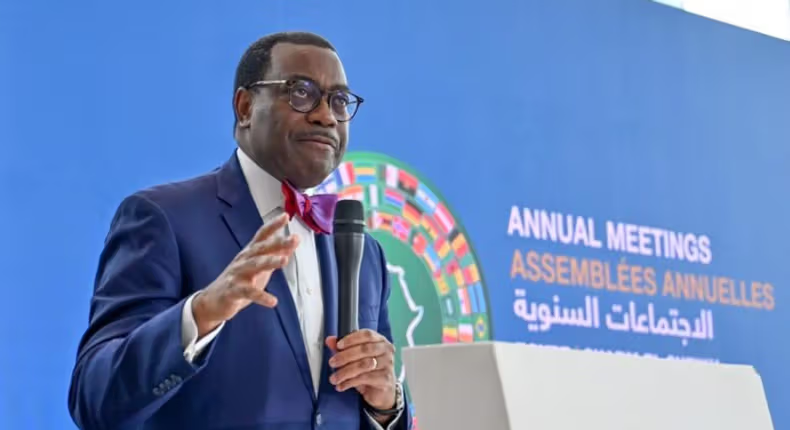Dr. Akinwumi Adesina, the President of the African Development Bank (AfDB), emphasized Africa’s disproportionate vulnerability to the impacts of climate change despite contributing only 3% of global emissions. In an interview with the British Broadcasting Corporation (BBC), monitored by the News Agency of Nigeria (NAN), Adesina highlighted that climate change has severe effects on agriculture and economies across the continent.
He noted that Africa loses between seven billion dollars and 15 billion dollars annually due to climate change impacts. In response to these challenges, the AfDB has launched ambitious initiatives aimed at building resilience and adapting to a changing climate.
One of the key initiatives mentioned is the African Adaptation Acceleration Programme, through which the AfDB plans to double its climate finance to 25 billion dollars by 2030. This program focuses on deploying funds for climate adaptation, aiming to make it the largest such initiative globally.
Additionally, the AfDB has established a climate action window with an initial investment of 429 million dollars, expected to grow to 13 billion dollars. This window supports vulnerable countries with measures such as crop insurance, land restoration, and climate information services, crucial for adapting to climate change impacts.
Adesina highlighted the role of innovative financial mechanisms, such as partial credit guarantees, in facilitating capital raise for climate resilience projects in African countries like Benin, Senegal, and Cote d’Ivoire. For instance, Benin successfully raised 400 million dollars from Chinese investors with the help of a 195 million dollar partial credit guarantee.
Moreover, the AfDB facilitated Egypt’s issuance of Panda Bonds, enabling the country to secure 500 million dollars from Chinese markets. These financial innovations aim to reduce borrowing costs and encourage long-term investments in climate resilience across Africa.
Despite the challenges posed by climate change, Adesina emphasized that Africa is leading in innovative solutions and sustainable development efforts. He underscored the need for a change in the global financial architecture to better serve Africa’s interests, including advocating for better utilization of Special Drawing Rights (SDRs) to support Africa’s economic recovery and climate adaptation efforts.
In conclusion, Adesina’s remarks highlight the AfDB’s commitment to addressing climate change impacts in Africa through substantial investments in resilience-building initiatives and innovative financial mechanisms aimed at securing a sustainable future for the continent amidst global climate challenges.
